3721949599_5f9f66fe9b_b-web-Photo-by-Alexandre-Estanislau-via-flickr
Do you have any thoughts on this post?
TRCP’s “In the Arena” series highlights the individual voices of hunters and anglers who, as Theodore Roosevelt so famously said, strive valiantly in the worthy cause of conservation
Hometown: Cloverdale, Indiana
Occupation: Consulting forester
Conservation credentials: Chairman of the Indiana chapter of the Ruffed Grouse Society. Educates landowners about how to use Farm Bill programs to achieve their wildlife goals on private forested lands.
Perry Seitzinger might never have become a hunter, forester, or conservationist had it not been for his father’s curiosity as a teenager—he joined a friend for a small game hunt, without a firearm or tag, and eventually dove into the sport as a way to bond with Perry and his brother. (There’s a lesson here: It’s always worth taking someone else along!) Now, Seitzinger is an active leader of the Ruffed Grouse Society in his state and a vocal advocate for overturning outdated ideas about responsible forest management.
Here is his story.
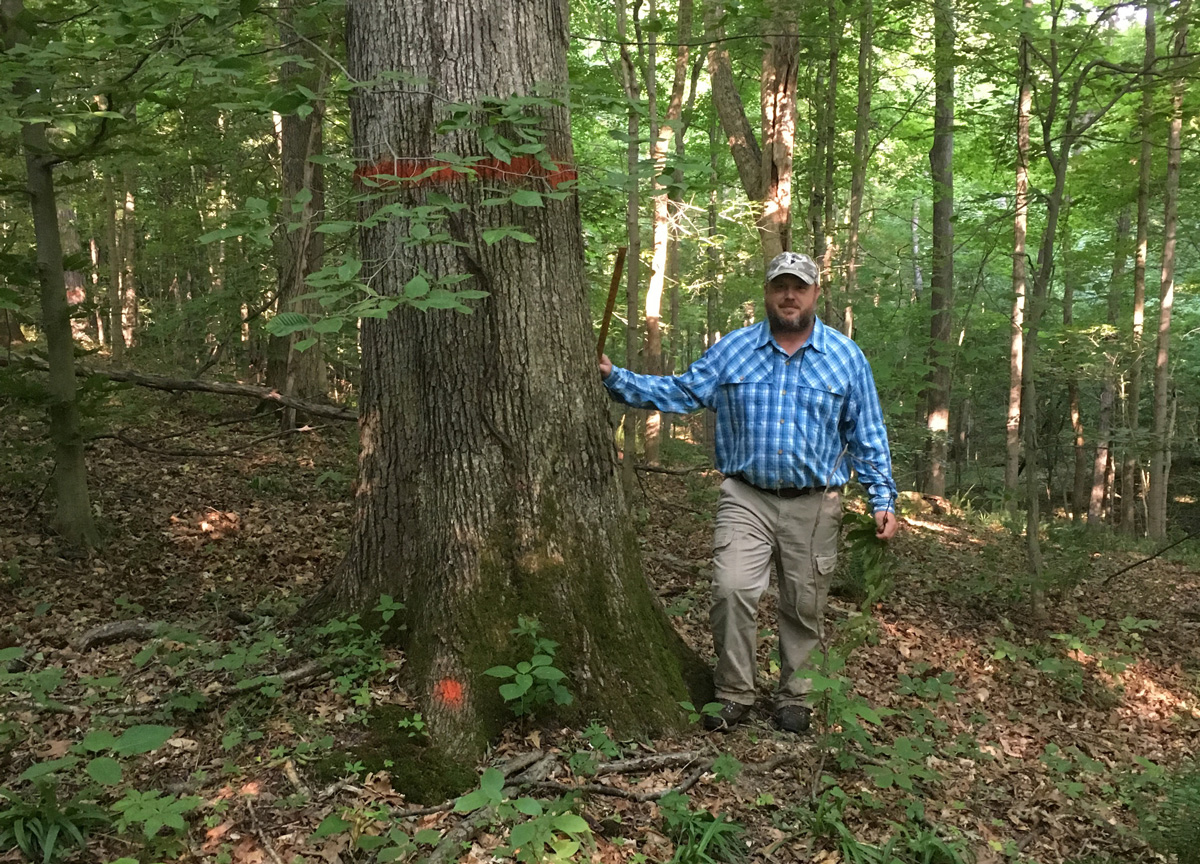
As a young man, my father tagged along with his best friend Perry on a pheasant and rabbit hunt in northern Indiana. He didn’t carry a gun, but it made an impression on him. It wasn’t until his early 30s that he met a friend through church who was interested in upland hunting and bird dogs. Dad was looking for a new hobby and a way to spend quality time with us, his sons.
It turns out that Dad’s decision to take up upland hunting was the defining moment that molded not only my pursuits as a young man, but also my life’s work as a hunter and conservationist.
Every year in October I spend a week in the Upper Peninsula of Michigan with my closest friends to chase the king of upland birds, the ruffed grouse, and the quirky little American woodcock. No other outdoor pursuit can replace the time I have spent with family, friends, and beloved bird dogs in the stunning beauty of the north woods in the Ottawa National Forest. This is a fine example of how wilderness, natural beauty, quality outdoors experiences, and intensive natural resource management aren’t mutually exclusive.
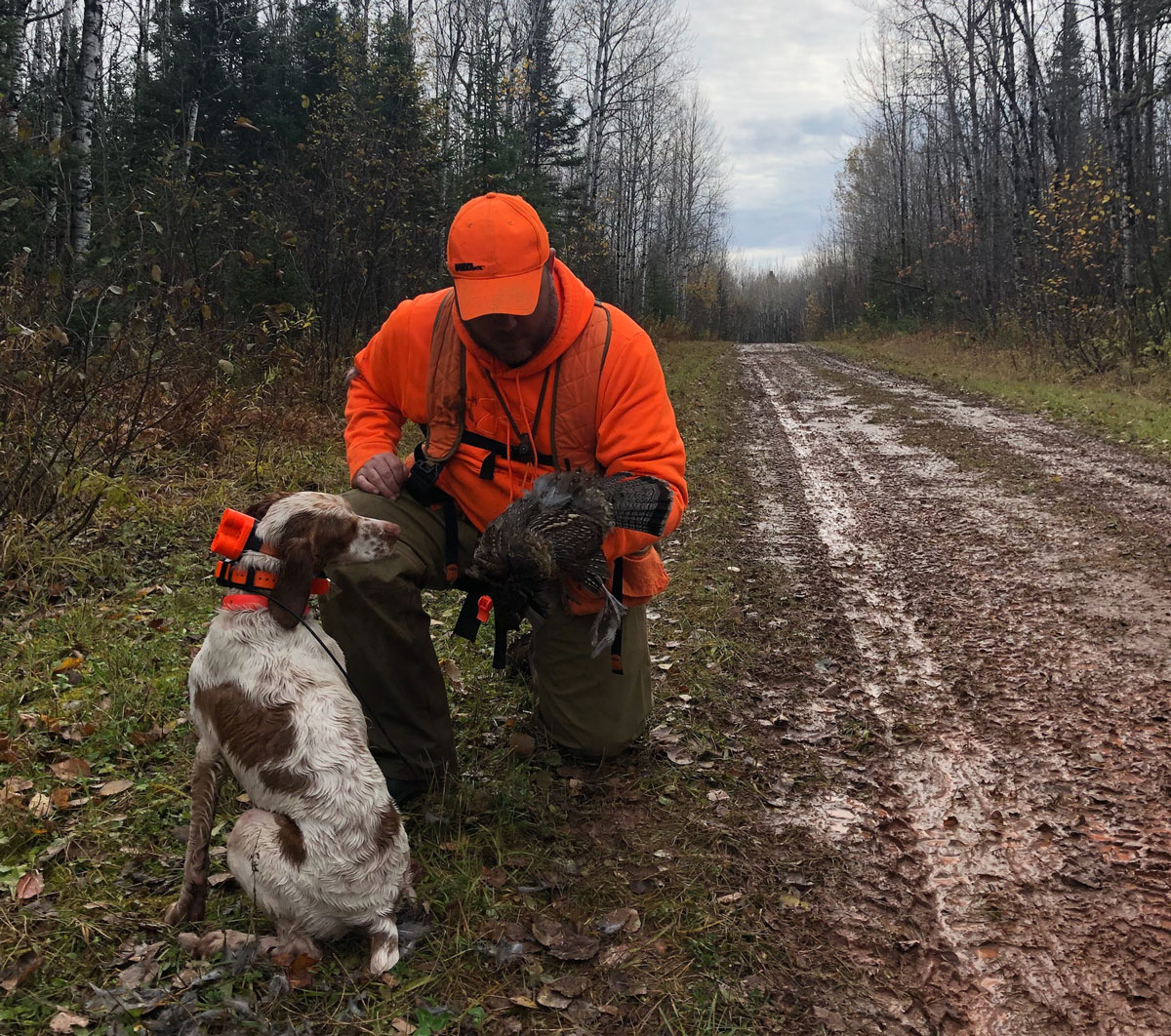
I had my best adventure afield in 2006, when I visited a college friend and fellow forester who lived in southeast Alaska on Prince of Wales Island. My goal for the trip was a DIY spot-and-stalk black bear hunt. Surprisingly, I was successful within the first hour of the hunt, but I learned far more from what came after.
I spent the remainder of my time diving into the local culture, touring the island, fishing, and setting crab pots. The vast, wild beauty of southeast Alaska can’t be put into words. The biggest impression that I took away from this experience was how many people I met there who were passionate about conservation, because their very existence was woven into the local management of their natural resources.
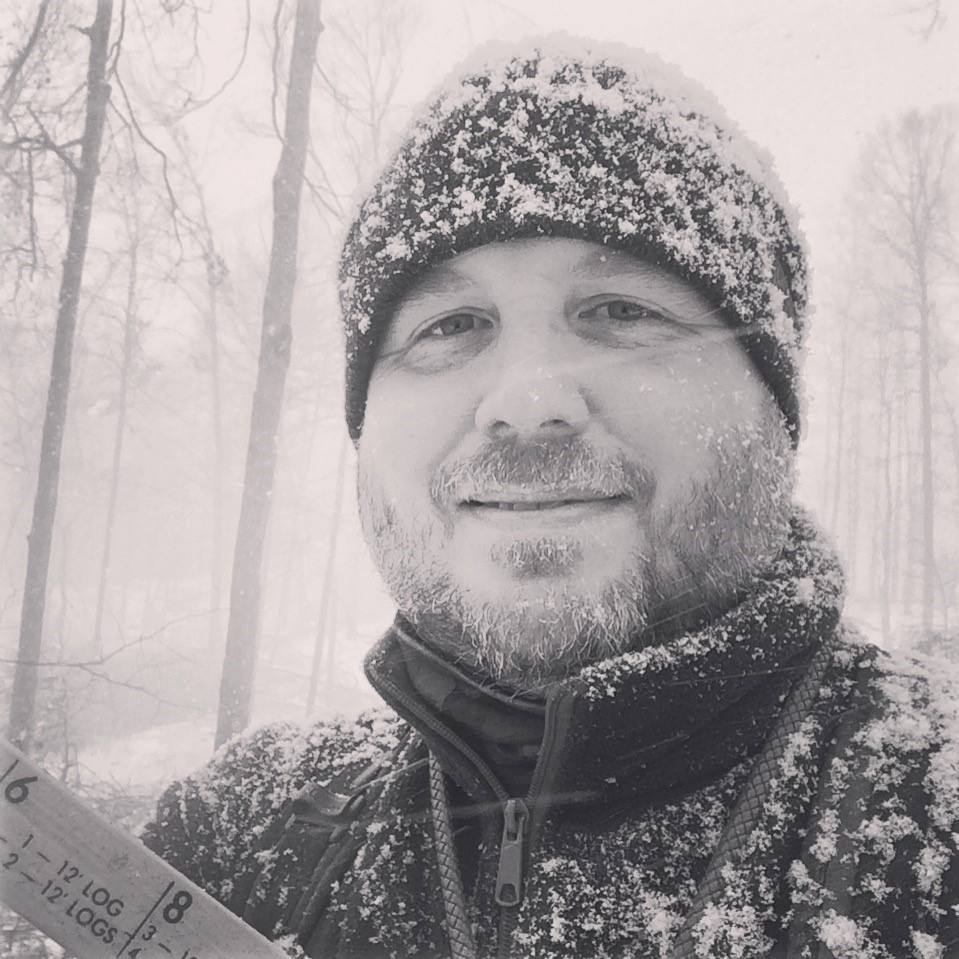
Conservation defines my life. Everything that I pursue is rooted in forest conservation. I realize that without boots-on-the-ground forest management and the decisive conservation efforts of those who came before me, the life I have chosen would not be possible.
The biggest conservation challenge in the central hardwoods region is the lack of forest age and class diversity on both public and private lands. Diverse, healthy forests that we have all come to love, and many of the critters that inhabit them, will no longer exist without sufficient disturbance at the landscape level. Responsible timber harvesting is actually the best conservation tool we have at our disposal for creating and maintaining diverse wildlife habitat and healthy forests.
I have a sentimental nature, and that drives my true passion of sharing outdoor experiences with others. In order for future generations to have the same experiences that I hold dear to my heart, I realize I have to give of myself to conservation.
Our forests and native plant communities, and the wildlife species that depend on them, are not static. Without the hand of man, it cannot be expected that our wild places will be the same tomorrow as they are today. It is my hope that by leaving a legacy of conservation behind, I can leave the same outdoor experiences I have been blessed with to my son and others that come after me.
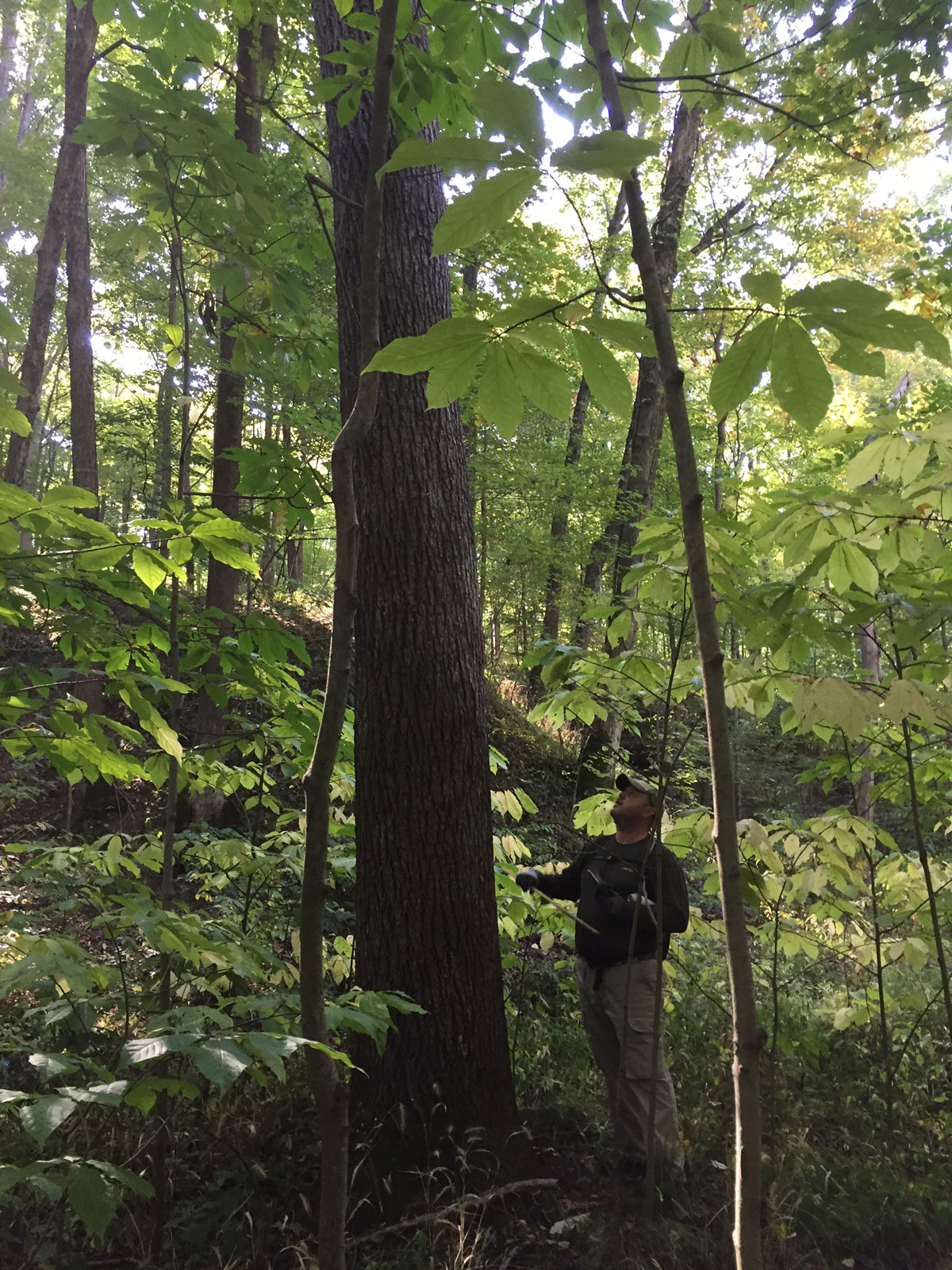
Do you know someone “In the Arena” who should be featured here? Email info@trcp.org for a questionnaire.
The Hunting Collective’s Ben O’Brien visits TRCP President and CEO Whit Fosburgh at his home on the Potomac River to talk about the direct effects of climate change on hunting and fishing and the other top challenges facing our community.
Skip right to Whit’s Q&A at 48 minutes in, or enjoy the full episode featuring some of the top female leaders at MeatEater HQ. (Bonus: They decide, based on internet photos, that Whit stacks up in the fashion and style department, where Rinella apparently does not.)
TRCP’s “In the Arena” series highlights the individual voices of hunters and anglers who, as Theodore Roosevelt so famously said, strive valiantly in the worthy cause of conservation
Hometown: Manhattan, Montana
Occupation: Executive Director of 2% for Conservation
Conservation credentials: Encourages businesses and individuals to expand their involvement in the cause of conservation by pledging at least one percent of their time and one percent of their money to the future of fish, wildlife, and habitat.
Once you meet Jared Frasier, you’ll soon see him everywhere you go. That’s because this tireless advocate for fish and wildlife is boundlessly outgoing in his quest to build a community of conservation-minded sportsmen and women. Prior to taking the helm at the nonprofit 2% for Conservation, he was volunteering over 500 hours a year serving on boards and committees for other groups, traveling to conferences and conventions, speaking out when and where it matters, and bringing folks together for the future of hunting and fishing.
Here is his story.
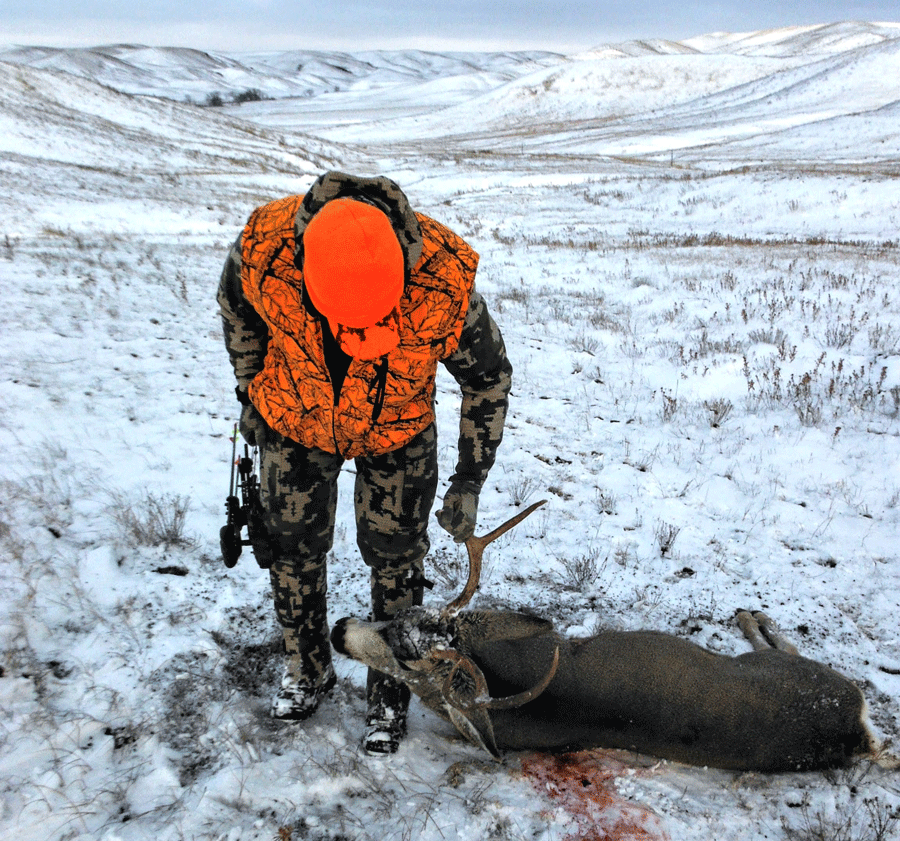
When I was a few months old, my parents bundled me up and used a half-drilled ice fishing hole as a makeshift cradle while they chased tip-ups near our home in northern Wisconsin. It was about as early an introduction to the hunting and fishing lifestyle as I could have hoped for.
By age ten, I was helping to harvest, process, and cook all of the wild fish and game my family could legally pursue. We were not well-off, so the majority of the protein in our home was caught, shot, or trapped. Eating wild meat wasn’t a trendy experiment for us: It was a financial necessity.
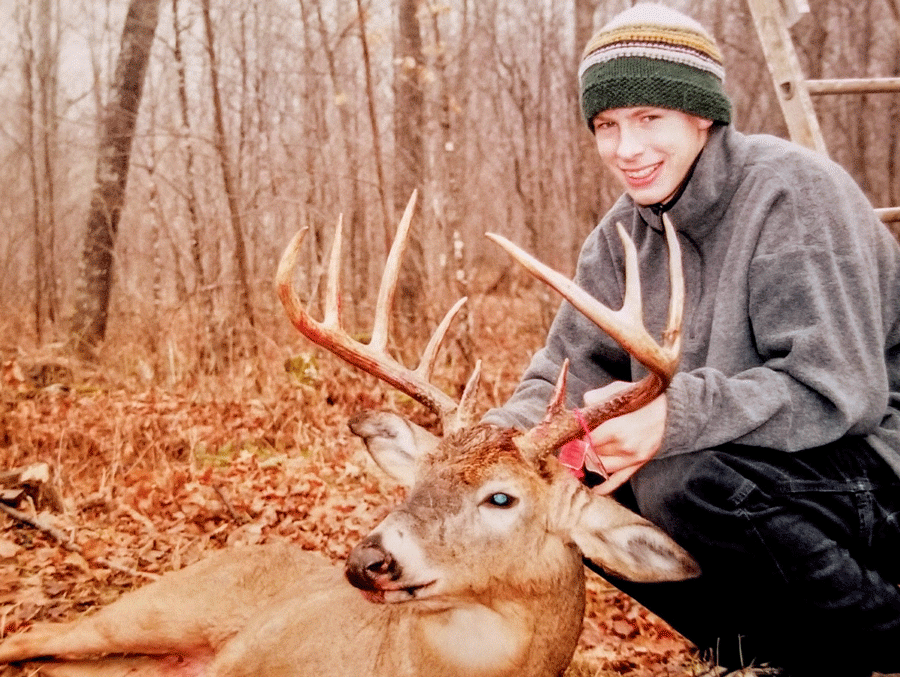
And my outdoor experiences growing up also gave me a taste for adventure and wild places. My parents saved every penny they could and piled us all into their old pickup for a DIY, over-the-counter archery elk hunt in New Mexico, where we camped on public land in the family tent. That trip blew me away, flooding my young brain with new sensory experiences.
From my first day in view of Wheeler Peak, this Northern Wisconsin boy knew he had to live in the mountains.
I have two kids right around seven years old now, and I’m very conscious of the need to expose them to as many ecosystems and outdoor pursuits as possible. It’s amazing how new places and habitats can get under your skin and inspire you. I myself hope to experience as many wild landscapes as I can in every corner of the globe.
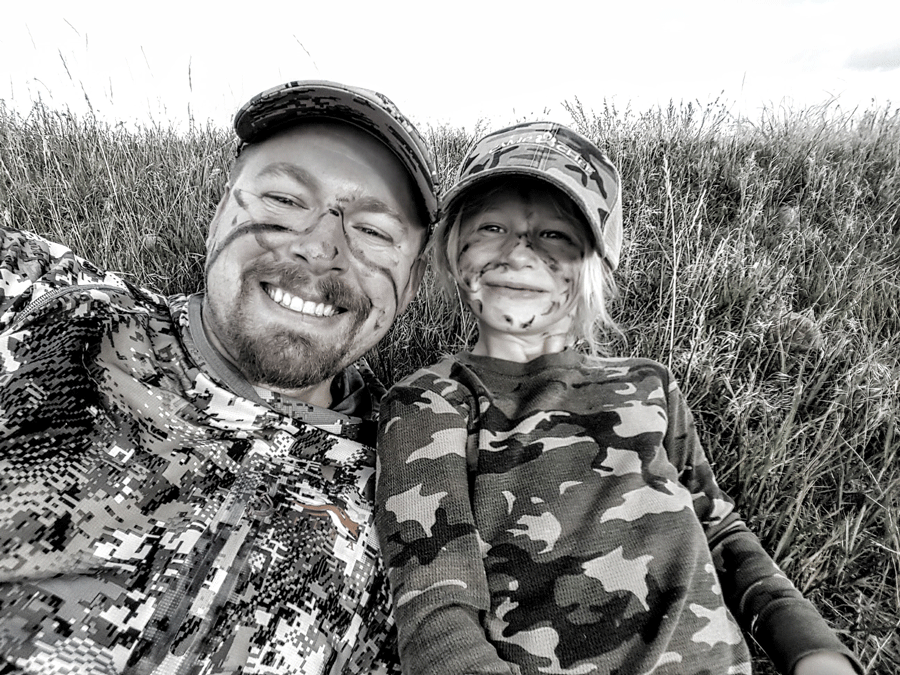
At this point in my life, I am happiest hunting and fishing where I know the populations of whatever species I am pursuing are in abundance. I’m absolutely invigorated by the efforts of others to ensure that future generations get the opportunity to roam “where the wild things are.”
Especially where I live, human housing and transportation development pose a serious threat to our wildlife. People are moving to the Bozeman area to enjoy the incredible outdoor opportunities we have in this part of Montana… and, as a result, our fish and wildlife are facing new pressures. Habitat is being fragmented and migration corridors are interrupted by new development. These resources can’t and won’t return once they are gone.
At the end of the day, we’re all simply borrowing wild resources from future generations. None of us own them. You can’t take them with you when you die. Unless you want to pass along a world covered in concrete and steel structures, you HAVE to be involved in conservation.
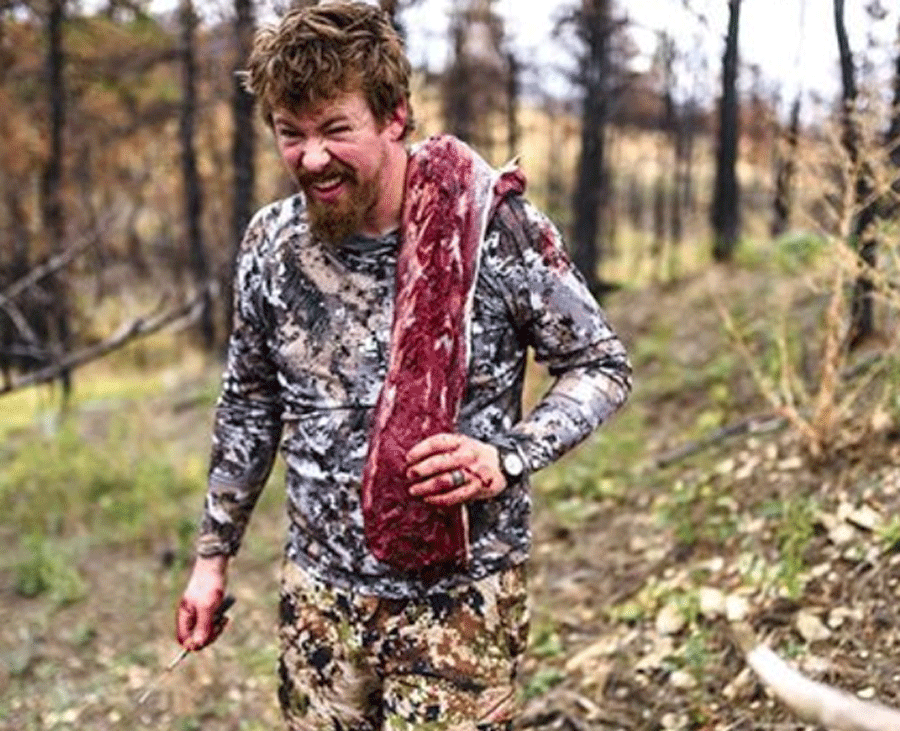
Do you know someone “In the Arena” who should be featured here? Email info@trcp.org for a questionnaire.
Leading conservation nonprofit welcomes three new Board members
The Theodore Roosevelt Conservation Partnership is proud to announce that three experienced and noteworthy outdoorsmen will be joining its Board of Directors.
Steven Rinella, Brian Yablonski, and Terry Hamby all share a passion for the critical role that hunters and anglers play in strengthening conservation.
“We are pleased to welcome these three sportsmen to the Board,” said Katie Distler, TRCP Board Secretary and former Board Chair. “With their diverse expertise, influence, and savvy, we are strengthening our ability to guarantee all Americans quality places to hunt and fish.”
Steven Rinella is the host of the Netflix original series MeatEater and The MeatEater Podcast. He’s also the author of six books dealing with wildlife, hunting, fishing, and wild game cooking, including the bestselling MeatEater Fish and Game Cookbook: Recipes and Techniques for Every Hunter and Angler. Rinella started hunting as a child and never looked back. Following stints as a commercial trapper and professional fisherman, he began a career as an outdoor writer. Less concerned with trophies and killshots, Rinella’s work largely focuses on the culture, process, and history of hunting and conserving wildlife and its habitat, as well as the linkage between hunting and food. Most importantly, he is known for his efforts to convey the value of hunting to a general audience and promote the work of conservation organizations and the importance of public land.
“The importance of groups like the TRCP to the future of our world and its wild places cannot be overstated,” said Rinella. “I’m honored to be part of an organization doing such great work and am eager to contribute to its efforts, which I’ve long admired.”
Brian Yablonski is the executive director of the Property and Environment Research Center, a 40-year-old market-based conservation research institute based in Bozeman, Montana. He recently served for fourteen years and two terms as chairman of the Florida Fish and Wildlife Conservation Commission, and was the director of external affairs for Gulf Power Company. Previously, Yablonski also served as director of policy and deputy chief of staff for former Florida Governor Jeb Bush. Early in his career, Yablonski worked in the West Wing of the White House as a staff assistant to President George H.W. Bush, providing support directly to the president and his immediate office. President Bush named him White House Horseshoe Commissioner. An avid outdoorsman, Yablonski splits his time between Bozeman and a cabin in Emigrant, Montana, where he enjoys hiking, hunting, fly fishing, and skiing.
“Hunters and anglers are the backbone of American conservation, and the TRCP serves as their bipartisan voice to ensure the legacy of our sporting tradition continues,” said Yablonski. “I am excited to be part of an organization that brings people together and works across the aisle on behalf of conservation.”
Terry Hamby is a fifth-generation soldier and a Vietnam veteran. After his retirement from the U.S. Army Reserves, he founded a company that provides complex logistic and support services to the U.S. armed forces in the Far East, Middle East, Africa, Central America, and United States. A Kentucky native, he is a life member of the American Legion and Veterans of Foreign Wars and continues to lobby Congress with a private citizens group on military readiness and quality-of-life issues for service members and their families. Hamby is currently the chair of the U.S. World War I Centennial Commission, created by Congress to educate Americans about the sacrifices of 4.7 million WWI veterans and memorialize their service by designing and constructing a national memorial in the nation’s capital.
“I want to do my part to leave creation better than I enjoyed it all my life and preserve it for our great grandchildren to enjoy,” said Hamby. “By serving on the TRCP Board of Directors, we can truly make a difference for the next generation of sportsmen and women.”
Theodore Roosevelt’s experiences hunting and fishing certainly fueled his passion for conservation, but it seems that a passion for coffee may have powered his mornings. In fact, Roosevelt’s son once said that his father’s coffee cup was “more in the nature of a bathtub.” TRCP has partnered with Afuera Coffee Co. to bring together his two loves: a strong morning brew and a dedication to conservation. With your purchase, you’ll not only enjoy waking up to the rich aroma of this bolder roast—you’ll be supporting the important work of preserving hunting and fishing opportunities for all.
$4 from each bag is donated to the TRCP, to help continue their efforts of safeguarding critical habitats, productive hunting grounds, and favorite fishing holes for future generations.
Learn More
